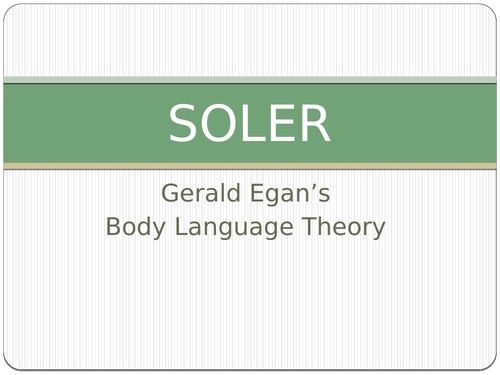







A complete resource delivery package for teaching Learning Objective 6 (LO6) for the OCR Cambridge Technical Level 2 - Unit 1 Principles of Working in Health & Social Care. There is a 29 page student booklet with the TWO engaging presentations to aid delivery and spaces in the booklet with guidance on making notes.
All the information and understanding organised into one place to help students with revision. LO6. Know key principles for communicating effectively
6.1 Verbal communication, i.e.
- tone
- pace
- clarity
- asking questions i.e.
a. open
b. closed - the communication cycle, i.e. inform, invite, listen and acknowledge
- SOLER principle (Egan), i.e. sit squarely, open posture, lean towards the individual, eye contact and relax
6.2 Non-verbal, i.e. body language, gestures, facial expressions, eye contact
6.3 Written, i.e. care plan, individual learning plan, risk assessment records, patient records, medical history, test results, temperature chart, e-mails, prescription
6.4 Specialist methods, i.e.
- sign language (BSL)
- PECS (picture exchange communication system)
- Makaton
- Braille
- assistive technology
6.5 Barriers to communication, i.e.
- environment, i.e. noise, space, lighting, heating, ventilation
- vocabulary i.e. jargon, specialist terminology, inappropriate body language, aggression, being patronising
- communication difficulties due to illness or disability, i.e. dementia, deafness, visual impairment, learning disability, autism, English not first language
6.6 Overcoming barriers to communication, i.e.
- adapting the environment i.e. lighting, sound, temperature, privacy
- use of appropriate vocabulary and terminology
- positive body language
- active listening
- use of specialist methods to communicate
- personal skills and qualities, i.e. patience, cheerfulness, sense of humour, empathy, respect
- providing a translator, interpreter, information in other languages
- use of an advocate
#hscresources TES shop has free and small charge teaching packages
Join the biggest subject team, Health and Social Care Resources Facebook group. 5,000 sharing ideas, resources, signposting and prop each other out
#hscresources
Something went wrong, please try again later.
This resource hasn't been reviewed yet
To ensure quality for our reviews, only customers who have purchased this resource can review it
Report this resourceto let us know if it violates our terms and conditions.
Our customer service team will review your report and will be in touch.